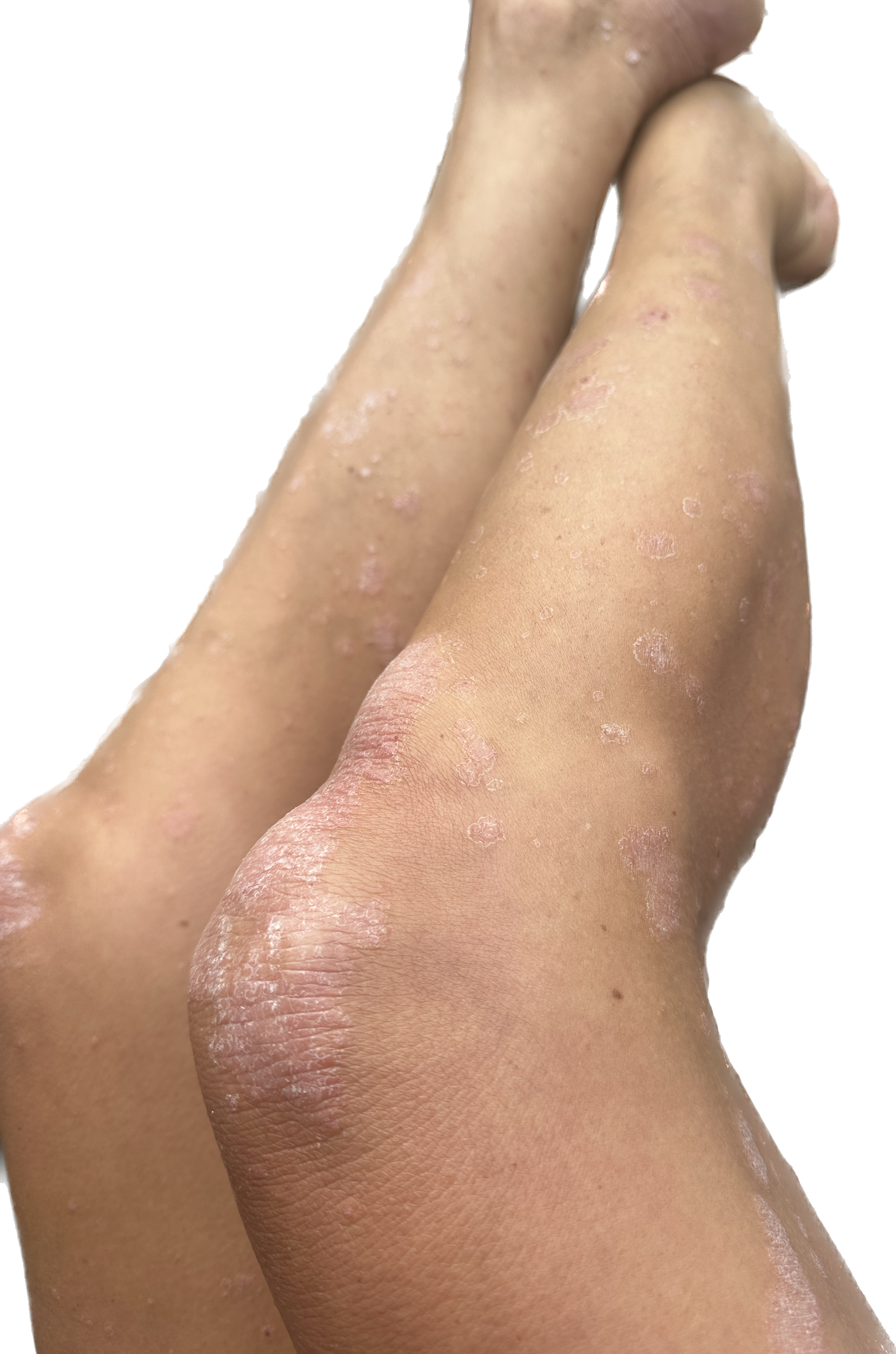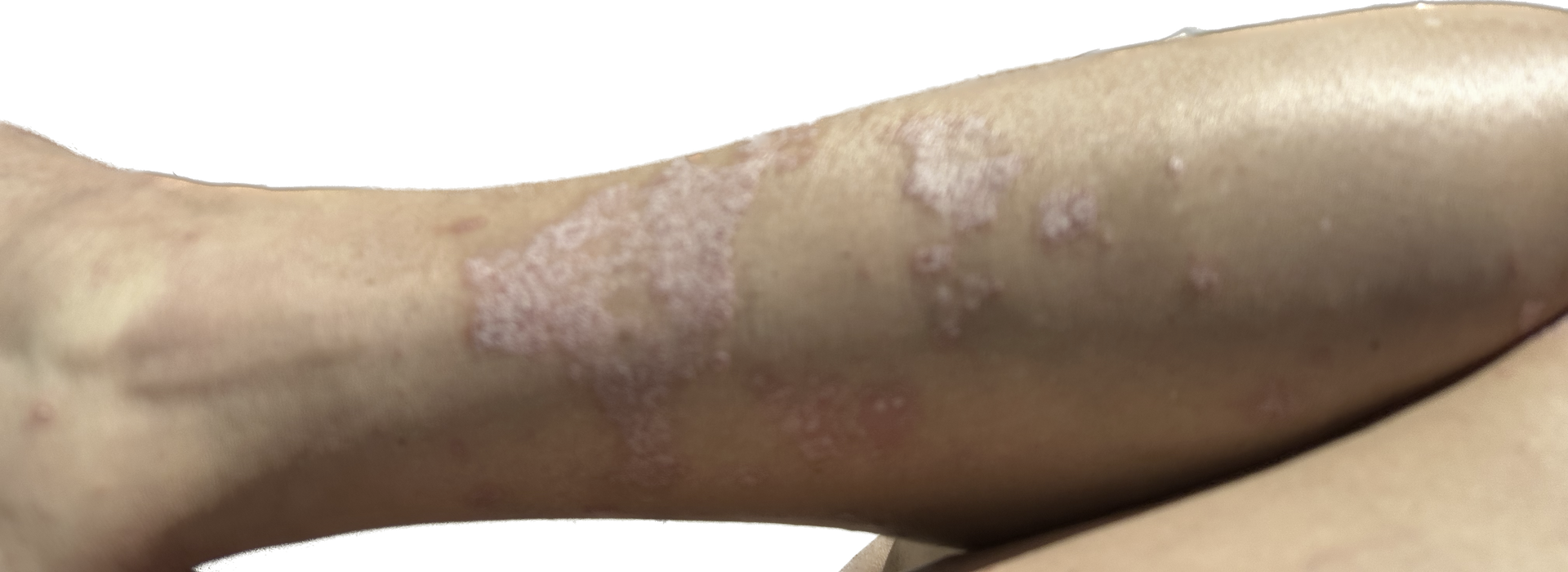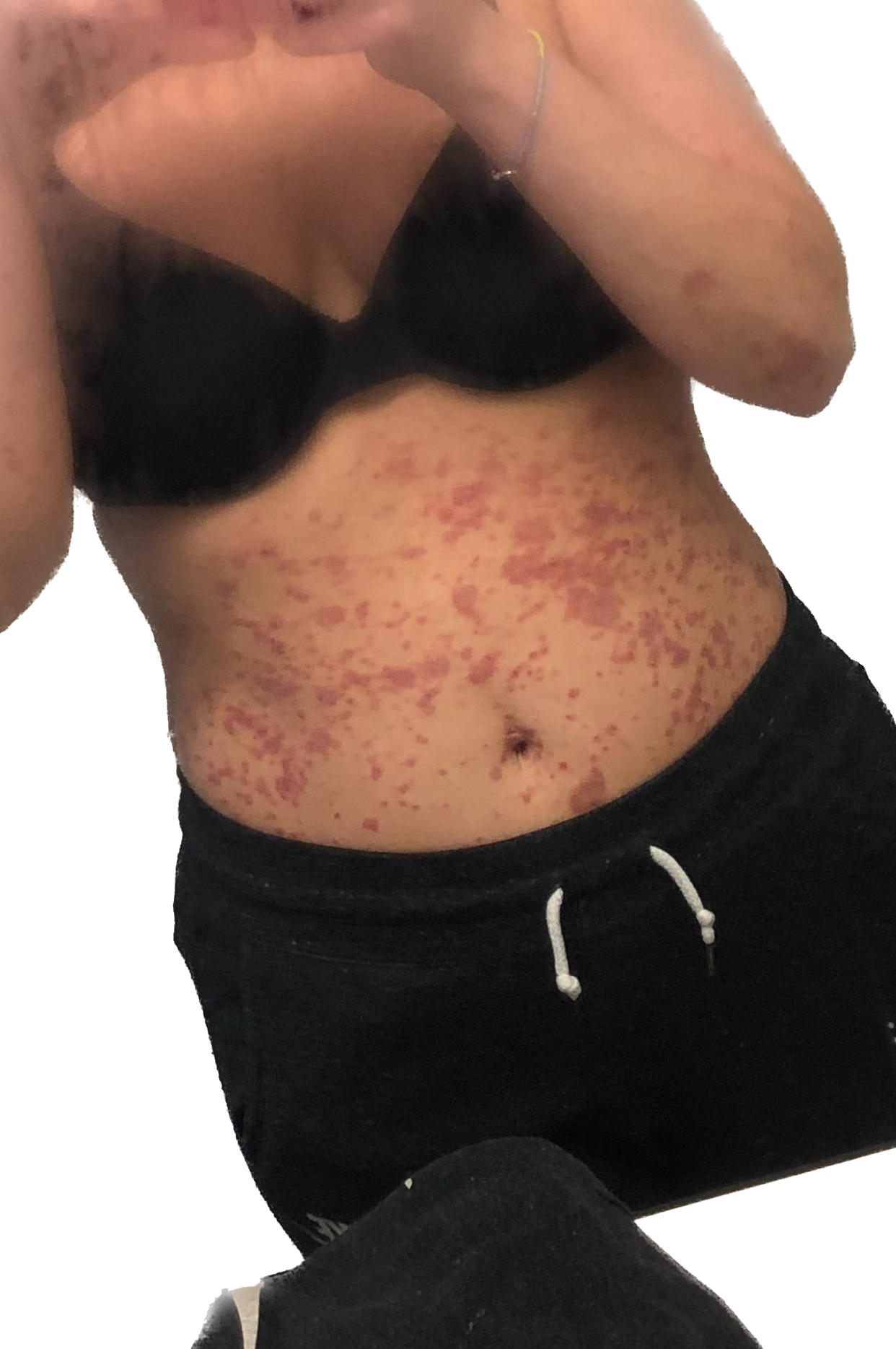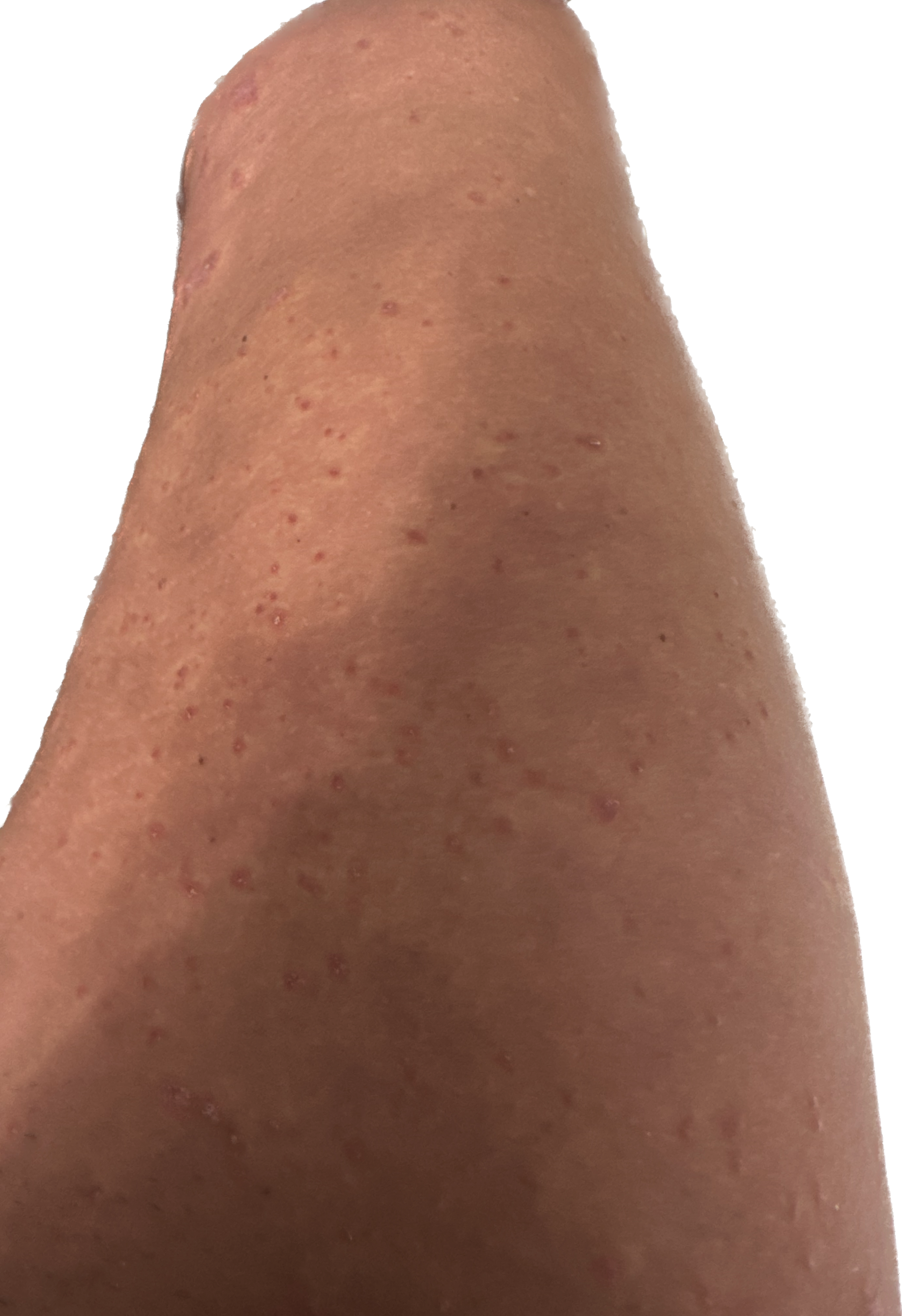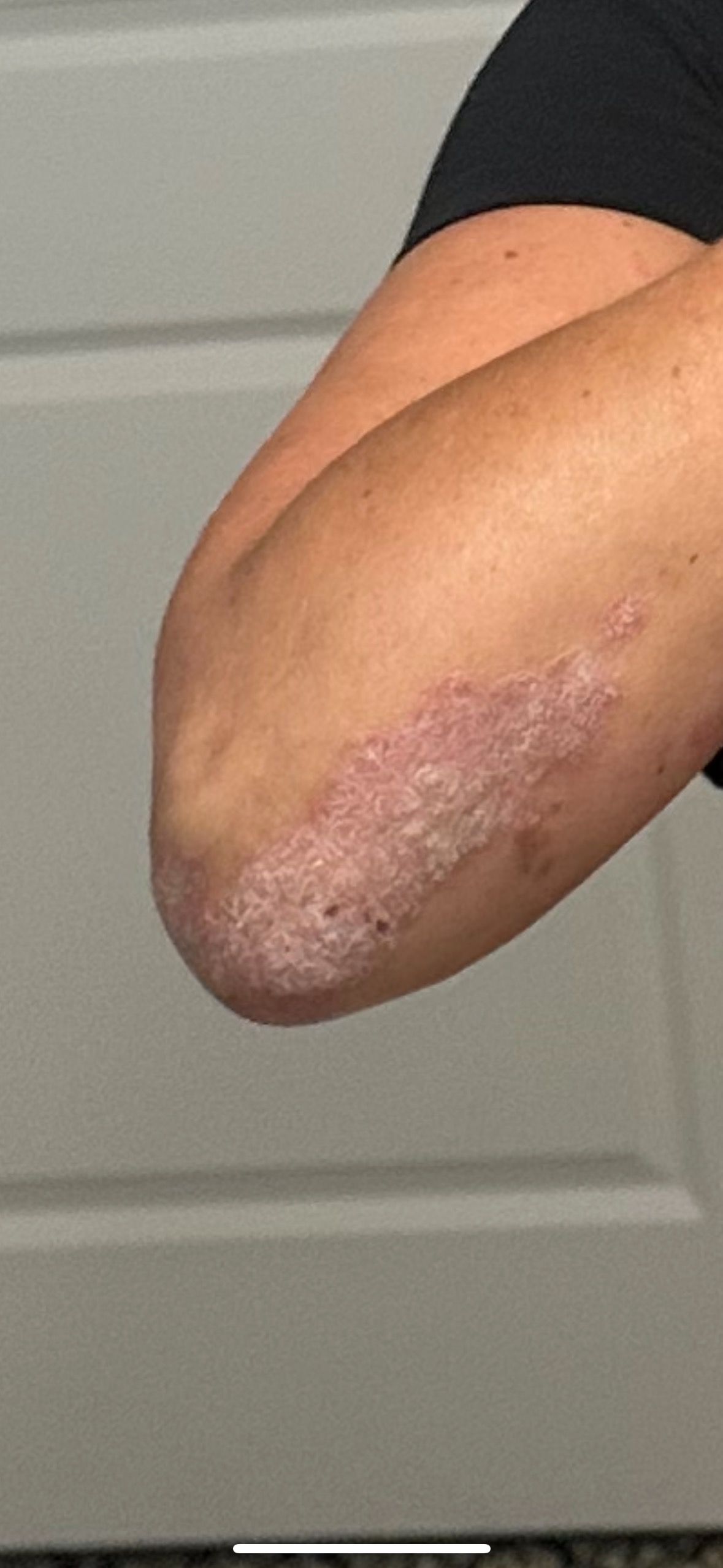This is my personal healthy journey and I want nothing more than to share it with you all, especially those who have suffered from Psoraisis at any point in their life!
- It all started in 1987 when I was six years old. Life, back then, was simple – a world adorned with crayons, treehouses, and an unwavering love for cookies.
One day, a noticeable transformation occurred on my skin. Legit, overnight, marking (no pun intended) the day my nightmare began with the challenges associated with a life of psoriasis. This term soon became a constant companion as I navigated through curious stares and questions about the way I looked.
Having grappled with this condition since the age of six, I've explored every conceivable treatment – creams, ointments, biologics, and more. After nearly 37 years of itchiness, I've uncovered the secrets to managing psoriasis. Now, I'm eager to share this knowledge with the world, infusing this journey with a sprinkle of humor.
I understand the skepticism – you've likely heard it all from doctors and experts. However, have you ever heard it from someone covered in spots from head to toe? If you've been on a lifelong quest to conquer this stubborn condition, trust me, you won't want to miss out on this skin-tastic journey.
over 37 years of navigating a path filled with laughter, pain, frustration and a whole lot of tears. Ever heard the saying? making lemonade from lemons? I'm here to show you how I transformed my biggest challenge into my greatest strength.
Unwillingly, I've become a psoriasis warrior, turning my scales into inspiring tales, and I'm eager to share them with you to help you live your best, most beautiful life!
Before
Vitamins and Minerals missing in
Psoriasis patients
*Vitamon B9, also known as Folate
*Vitamin B12, also known as cobalamin. It is one of the essential B vitamins that plays a crucial role in various bodily functions, including the production of red blood cells, neurological function, and DNA synthesis.
*Vitamin B6, also known as pyridoxine, Vitamin B6 is involved in the metabolism of amino acids, which are the building blocks of proteins. It helps convert amino acids into other compounds and is essential for the synthesis of certain neurotransmitters, such as serotonin, norepinephrine, and gamma-aminobutyric acid (GABA). Hemoglobin Production: Vitamin B6 is necessary for the formation of hemoglobin, the protein in red blood cells responsible for transporting oxygen to tissues throughout the body. Immune Function: It plays a role in supporting the immune system, and its deficiency may impair immune function. Nervous System Health Vitamin B6 is important for the proper functioning of the nervous system. It is involved in the production of myelin, a fatty substance that insulates nerve cells and facilitates nerve impulse transmission.
*Glycogen Breakdown: It participates in the breakdown of glycogen into glucose, which is important for maintaining blood sugar levels, especially during periods of fasting or high energy demand.
Omega-3 Fatty Acids: Some studies suggest that omega-3 fatty acids, found in fatty fish like salmon and in fish oil supplements, may help reduce inflammation and improve psoriasis symptoms. Including more omega-3-rich foods in the diet or taking supplements under medical supervision may be beneficial.
*Vitamin D: Vitamin D is important for skin health, and psoriasis patients may be at risk of deficiency, especially if they have limited sun exposure due to skin lesions or use sun protection consistently.
*Antioxidants: Antioxidants, such as vitamins C and E, selenium, and beta-carotene, play a role in reducing oxidative stress and inflammation. A diet rich in fruits, vegetables, and whole grains can provide these nutrients
*Reduction of Homocysteine Levels: Vitamin B6, along with other B-vitamins such as B12 and folate, helps in the conversion of homocysteine, an amino acid, into other beneficial substances. Elevated levels of homocysteine are associated with psoriasis.
Nutrients:
- Energy Source: Carbohydrates, fats, and proteins are macronutrients that provide the body with energy for various physiological functions.
- Tissue Building: Proteins are essential for building and repairing tissues, including muscles, organs, and the immune system.
- Cellular Function: Micronutrients like vitamins and minerals aid in cellular processes and energy production.
Vitamins:
- Metabolic Reactions: Many vitamins act as cofactors or coenzymes, facilitating metabolic reactions in the body. For example, B-complex vitamins play a role in energy metabolism.
- Antioxidant Defense: Vitamins A, C, and E, among others, function as antioxidants, helping to neutralize free radicals and protect cells from damage.Immune System Support: Vitamin D plays a role in modulating the immune system. It can help the body defend against infections and may reduce the risk of autoimmune diseases. Adequate vitamin D levels are associated with better immune function.
- Cell Growth and Differentiation: Vitamin D is involved in regulating cell growth and differentiation. It may have a role in controlling the growth of various cell types, including cancer cells. Some research suggests that it can help regulate genes related to cell division and growth.
- Hormone Regulation: Vitamin D influences the regulation of several hormones, including parathyroid hormone (PTH) and insulin. Proper hormonal balance is crucial for various bodily functions, and vitamin D helps maintain this balance.
- Enzyme Function: Many minerals act as cofactors for enzymes, facilitating various biochemical reactions in the body
